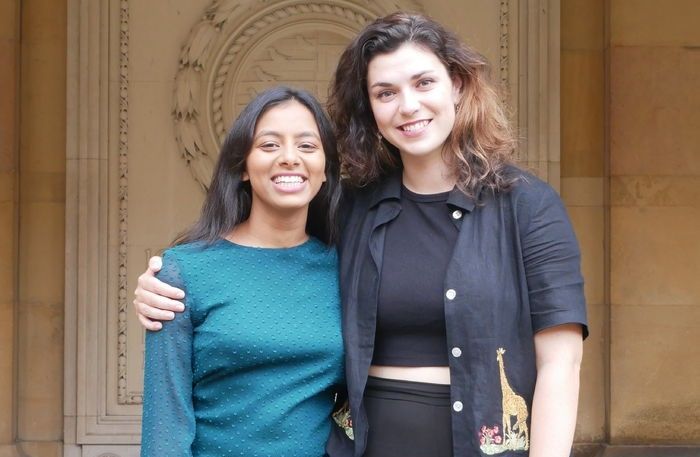In conversation with Jimmy’s homeless charity
Varsity sits down with the CEO of Jimmy’s to learn about homelessness in Cambridge, provisions available, and what students can do to help

Over the years, Varsity has produced many articles around the pervasive issue of homelessness in Cambridge, endorsing charitable attitudes and exposing the reality of living on the streets of one of the most historically privileged cities in England. Following this tradition, I sat down with Mark Allan – the CEO of Jimmy’s, a charitable organisation offering support to rough sleepers in Cambridge – to find out more about what kind of provisions are available and what we students can do to help.
Mark tells me that Jimmy’s has been providing housing for people with nowhere to live for twenty-eight years. Their hostel on East Road is typically the “first place in Cambridge someone would stay if they find themselves rough sleeping”, before moving to more permanent housing, such as their shared facilities. Once here, they are supported to try to work through the issues that lead to them becoming homeless.
“Everyone on the street has suffered trauma”
Although Mark describes Cambridge as a “compassionate city” he fears that not everyone “fully understands that there’s not really a choice” when it comes to homelessness. “Everyone on the street has suffered trauma”, he says, listing addiction, mental health and relationship breakdown as examples of the complex issues people may be facing. Mark explains that the prospect of beginning to face this trauma often means that people are deterred from moving into their housing. Those who have been sleeping rough may also struggle to assimilate to new, more restrictive living conditions, which include measures such as curfews.
For those who feel unable to stay in housing, Mark says, there are other organisations who offer help to people sleeping rough. Organisations like Winter Comfort offer advice and clothing, while numerous charities provide food. When I ask what we can do to help those that appear to be rough sleeping, he emphasises: “do what you’re comfortable with”.
“You may be on your own and it may be dark”, he says, “you can just walk on and that’s fine”. But if you want to smile or say hello and you feel safe to do so, “that will be appreciated”. For people with a bit of cash to spare, Mark says you could “buy a cup of coffee or a sandwich if that’s what you want to do”.
However, he advises against giving money directly to someone on the street, as ending up with more money than one is used to can lead to spending where they otherwise wouldn’t or on “something that can cause a problem”.
Instead, Mark suggests giving money to these charitable organisations, or to the grant set up by the council called Street Aid. This grant, he tells me, provides money for those who need access to essentials like new clothes, or a mobile phone. Alternatively, people can fundraise or volunteer directly with the organisations, serving food or gardening for example. Getting involved with these positions is a great way to “engage with the residents” and provide support directly. Jimmy’s website posts regular updates about their volunteering opportunities.
Their website also posts regular updates about new developments. Excitingly, Cambridge recently conducted research into the impact of their new modular homes. Led by Dr Gemma Burgess at the Department of Land Economy, researchers found that implementing these inexpensive buildings on unused land is a straightforward, economically viable method of providing housing, and it has been proven to be a “really positive experience” for the residents.
Our conversation ends as Mark tells me how eager he is to “engage more with student groups” to talk more about homelessness and rough sleeping, so that people can ask questions. Recently, he says, students have been engaging in situations with people who are rough sleeping and “maybe putting themselves at risk”.
Educating ourselves about the complexities of homelessness means we can all make more informed decisions. Most importantly, “do what you feel comfortable with” and be kind.
If you have any questions or just want to find out more, Mark can be reached at mark.allan@jimmyscambridge.org.uk .
 Music / The pipes are calling: the life of a Cambridge Organ Scholar25 April 2025
Music / The pipes are calling: the life of a Cambridge Organ Scholar25 April 2025 Arts / Plays and playing truant: Stephen Fry’s Cambridge25 April 2025
Arts / Plays and playing truant: Stephen Fry’s Cambridge25 April 2025 Comment / Cambridge builds up the housing crisis25 April 2025
Comment / Cambridge builds up the housing crisis25 April 2025 Interviews / Dr Ally Louks on going viral for all the wrong reasons25 April 2025
Interviews / Dr Ally Louks on going viral for all the wrong reasons25 April 2025 News / Candidates clash over Chancellorship25 April 2025
News / Candidates clash over Chancellorship25 April 2025






